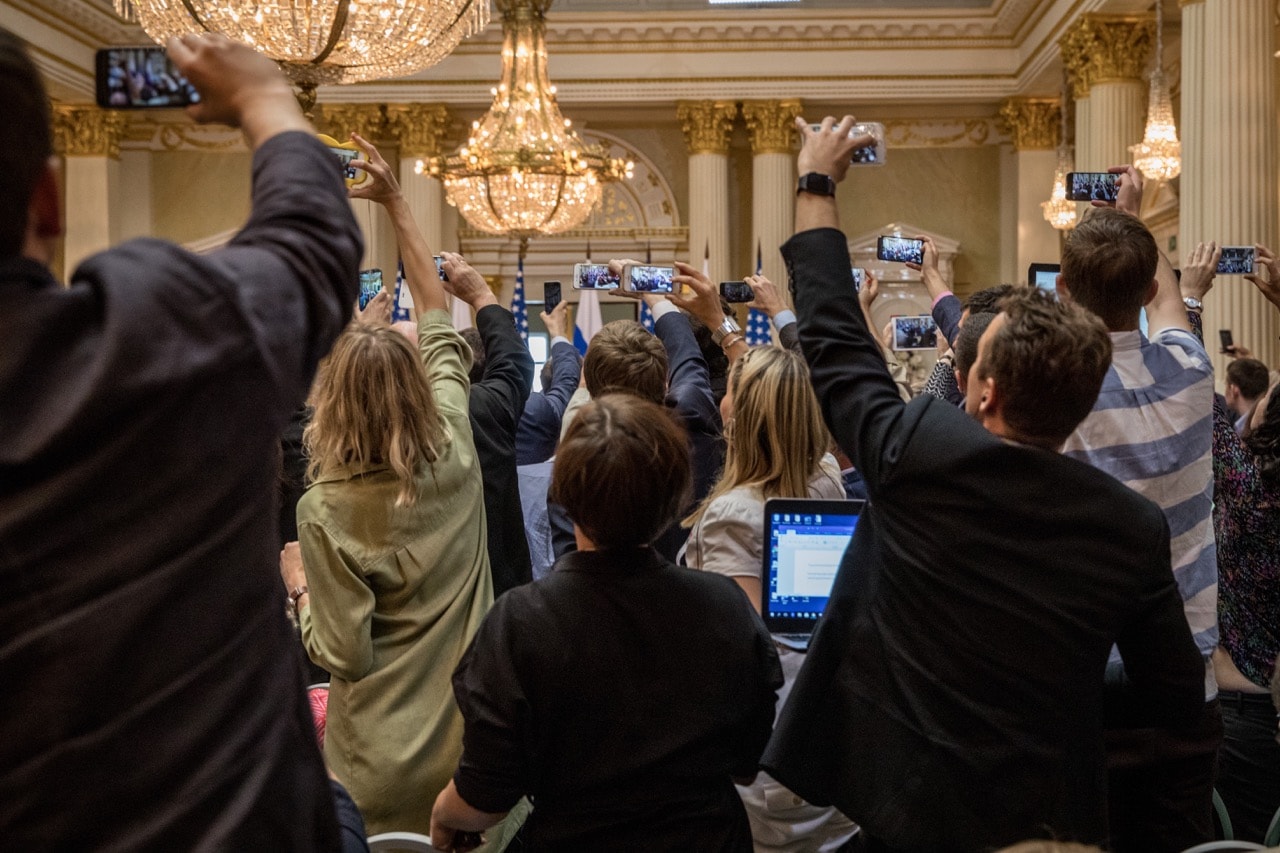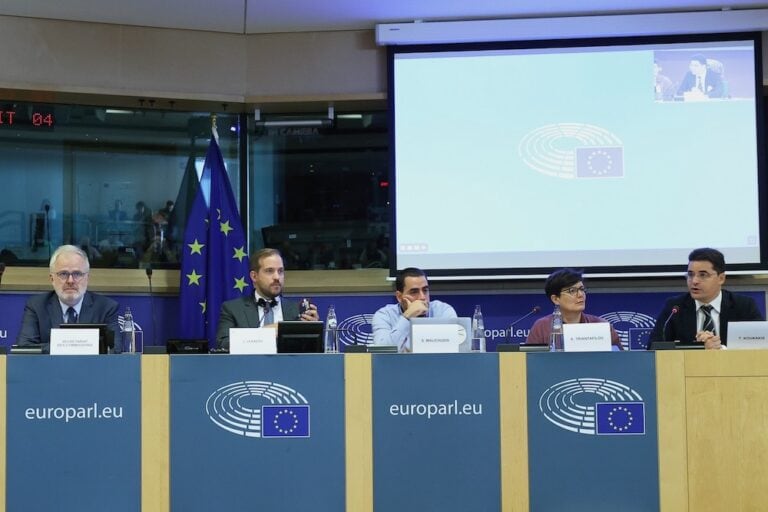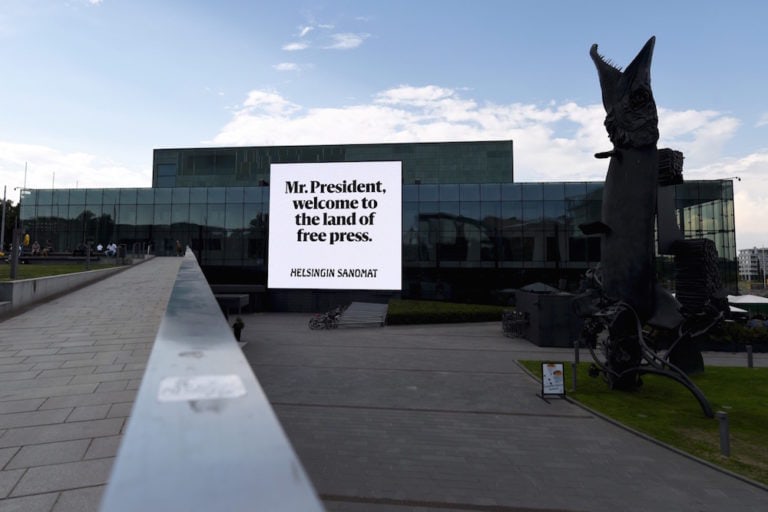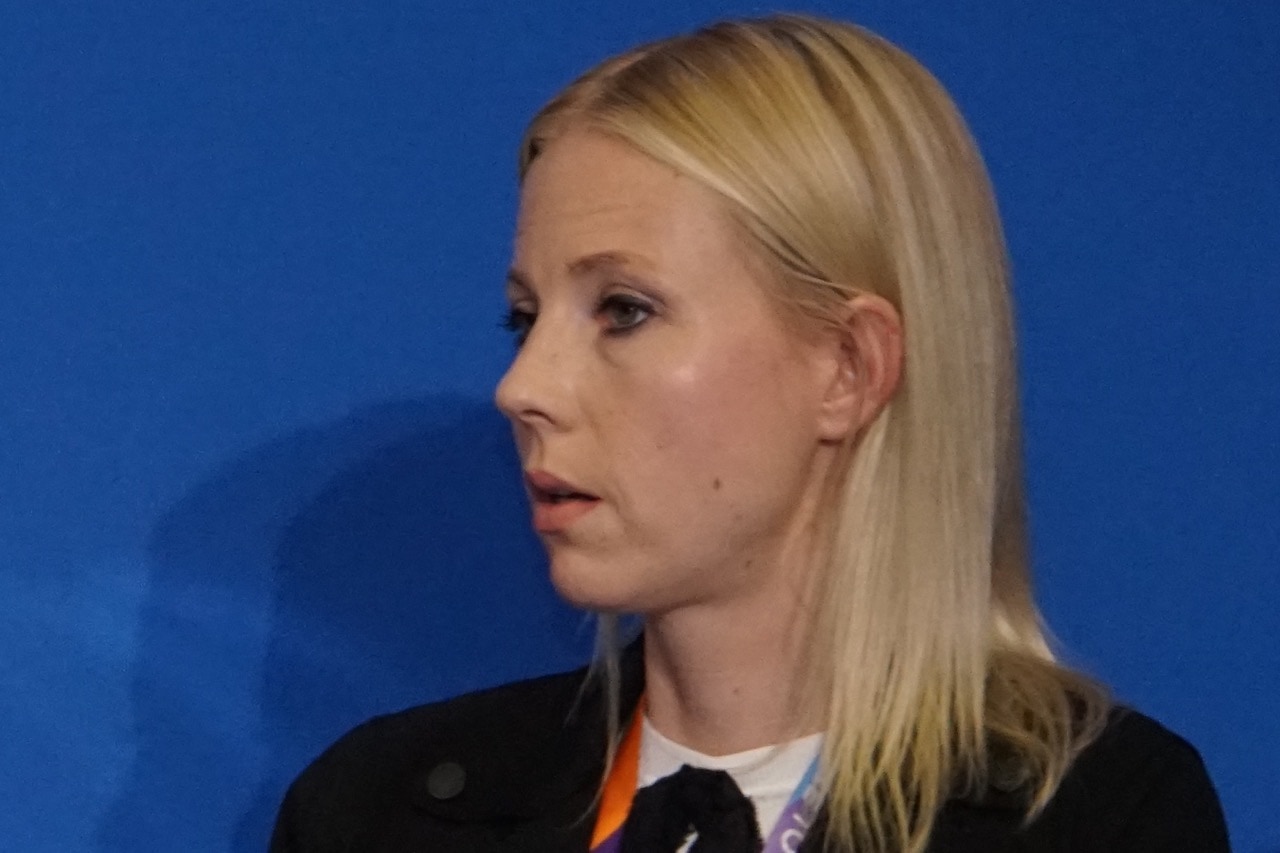The year 2018 saw courts handing down convictions for abusive online attacks and campaigns against journalists.
This statement was originally published on ipi.media on 7 February 2019.
Despite working in a country that routinely tops press freedom rankings, Finnish journalists increasingly face a new threat to press freedom: online harassment. And until recently in the country, harassment campaigns against journalists had largely gone unpunished. The year 2018, however, saw a positive shift, with courts handing down convictions for abusive online attacks and campaigns against journalists. Observers say the decisions set a new precedent in Finland and could be an example for the rest of Europe.
The latest ruling came in October when a Finnish regional court convicted the instigators of an online harassment campaign against Finnish journalist Jessikka Aro of stalking, aggravated defamation and incitement to aggravated defamation following years of sustained attacks on Aro through various channels. Aro is known for her award-winning investigative reports on Russian online trolls.
The ruling was praised by the Finnish journalist community.
“The court judged that systematic harassment of an individual journalist and inciting others to do so can be compared to physical abuse”, Arno Ahosniemi, the editor-in-chief of Finnish business daily Kauppalehti and the chair of the Guild of Finnish Editors, said in an interview with the International Press Institute (IPI).
“The ruling is a clear signal that Finnish society does not allow it”, he added.
Read IPI’s full report on online harassment of journalists in Finland
The court handed a one-year suspended sentence for stalking to Johan Bäckman, a Finnish scholar living in Russia who had, according to the court, harassed Aro by repeatedly contacting her and writing social media posts ridiculing her for over 16 months. The court also convicted Bäckman of aggravated defamation and incitement to defamation.
Additionally, the founder and former manager of Finnish “alternative” media sites as well as his management successor were sentenced on aggravated defamation charges, the latter to one year and ten months in prison. The three convicted individuals were ordered to pay over €88,000 in compensations to the journalist.
Landmark rulings
Ahosniemi stressed that the ruling was an important landmark in safeguarding freedom of expression in Finland. Earlier in 2018, the Guild of Finnish Editors called on lawmakers to review Finland’s anti-stalking laws to better address the continuing harassment of journalists.
“If harassment of journalists becomes more common, journalists will not want to cover certain topics. And that is exactly what these criminals want”, he said.The ruling in Aro’s case has been applauded for taking into account different forms of online harassment, such as targeting and tagging on social media. In this case, targeting means inciting others to harass a certain person, such as a journalist, on social media. Tagging here refers to adding the social media handle of the target of the harassment campaign in messages to make sure the person sees the message and to cause distress to the target. The court concluded that though individual messages sent to Aro were not intimidating, they were likely to cause distress when considering the whole context.
Jessikka Aro’s lawyer, Martina Kronström, told IPI that she and Aro were satisfied with the sentences, though Kronström pointed out that one shortcoming of the case was that people who took part in the harassment campaign incited by the defendants were not brought to account.
Although persons have been convicted in Europe of harassing journalists by sending them death threats, the masterminds behind organized vilification campaigns have rarely been brought to justice. In this sense, the ruling in Aro’s case could set a new example.
For Kronström, the new offence of stalking, which was introduced recently in Finland and in other European countries following the Istanbul Convention and is more commonly associated with preventing domestic violence, could play a key role.
“Journalists are always subject to criticism”, Kronström said. “This could help to draw a line where criticism turns into stalking.”
It should be noted, however, that the use of criminal defamation laws specifically to prosecute harassment of journalists is a thornier issue. European and international human rights bodies, including courts and IGOs, have criticized the imposition of criminal sanctions for defamation due to the fear of a wider chilling effect on free expression. IPI and other press freedom groups have repeatedly called for the repeal of criminal defamation laws, arguing that civil measures are equally effective in redressing violations of the right to reputation.
Burden of proof still on journalists
Journalists across Europe have reported frustration with authorities’ failure to address the harassment of journalists, with initial investigations often being dropped – if they are started at all – due to a lack of evidence and the anonymous nature of the threats.
Aro’s case was helped by the sheer extent of the complaint against the former manager of Finnish alternative media sites: the case had a total of nine plaintiffs.
Earlier in 2018, Finland saw another important judgment when a regional court convicted two men of defaming journalist Linda Pelkonen. The men had sent abusive messages to Pelkonen and implied that she should be raped. Last month, a court of appeal found a third man guilty of criminal threatening. The harassment campaign was sparked by an article in which Pelkonen questioned the police’s decision to disclose the ethnicity of a suspect in a rape case.Though journalists like Aro and Pelkonen were eventually able to take their cases to the court, the burden of providing enough proof fell largely on the journalists themselves.
“We had to do a lot of work to get the investigation to go forward with the police”, Kronström said.
The initial enquiry into Pelkonen’s case was at first dropped. But Pelkonen appealed the decision with the help of the Union of Journalists in Finland and the investigation was reinstated.
Tytti Oras, a lawyer with the Union of Journalists, stressed the importance of guaranteeing enough resources for the police and prosecutor to investigate harassment cases so that journalists do not need to wait years for rulings. The harassment against Aro began as early as 2014.
Deterrent to harassers?
The Finnish journalist community was hopeful that the rulings given in 2018 would discourage people from taking part in harassment campaigns against journalists.
“People who have targeted a journalist can now see that it is not acceptable”, Oras explained.
More time, though, is needed to see the concrete impacts of the rulings, Arno Ahosniemi said. Finland is headed toward a turbulent spring in politics with elections for the Finnish and European parliaments coming up. Ahosniemi predicted that the elections might provoke some campaigning against journalists as some inflammatory subjects like immigration policies are likely to be on the table.
Matti Tolvanen, a professor in criminal law at the University of Eastern Finland, said he hoped that the rulings could serve as an example beyond the Finnish borders.
“If we put a stop to abuse when it is still verbal harassment, we can try to ensure that words do not turn into action”, Tolvanen said, commenting on the importance of the verdicts.
An appeal in Aro’s case is still pending.



